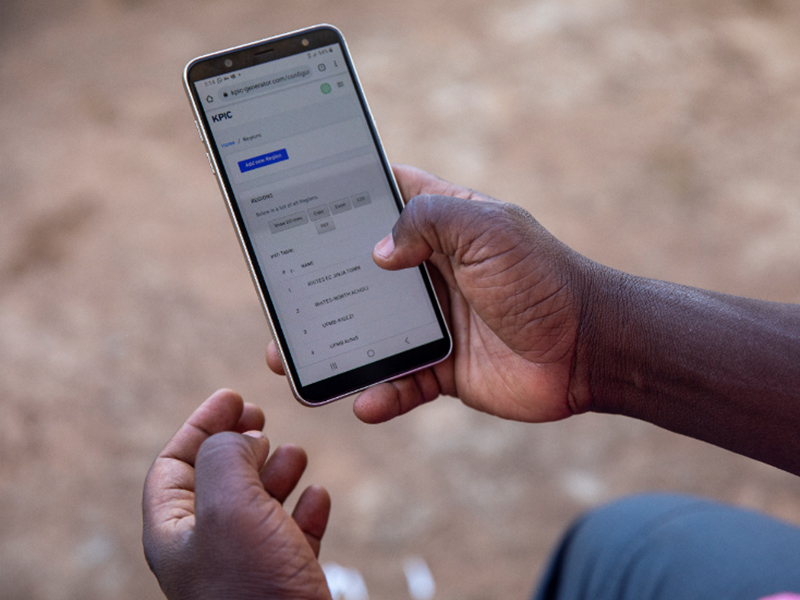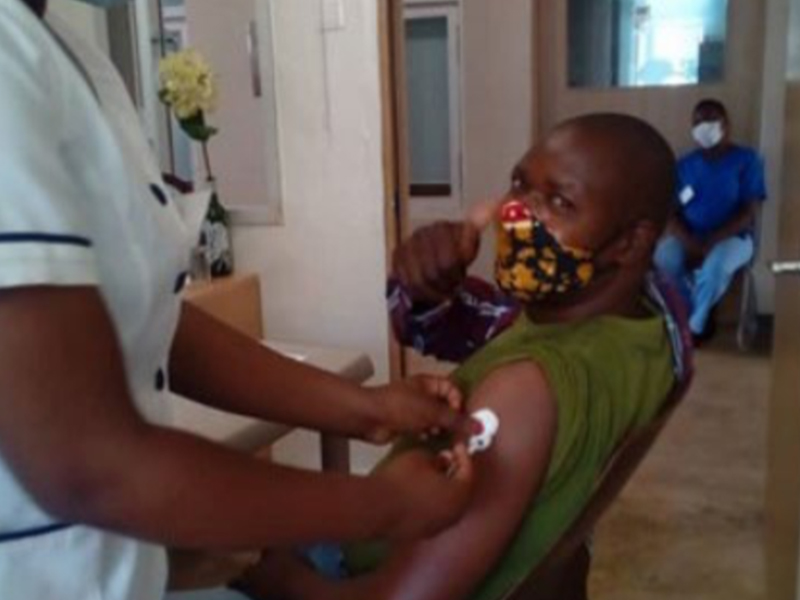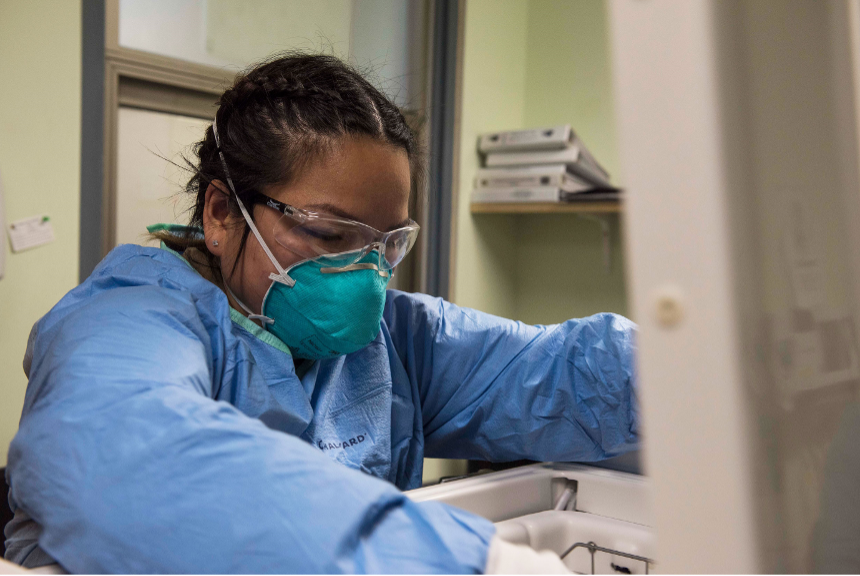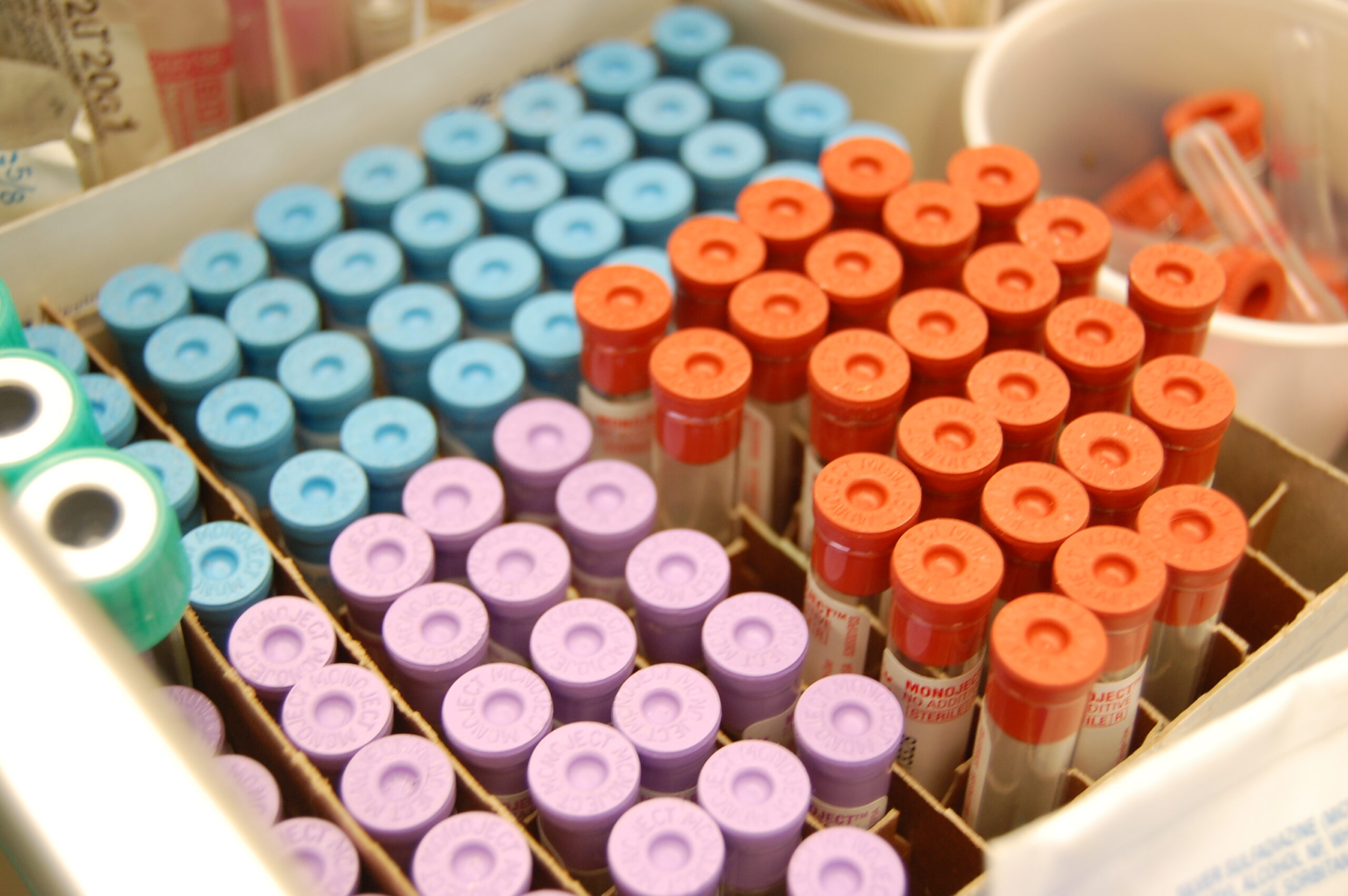Data.FI is accelerating global health gains by catalyzing breakthrough solutions and finding new ways to reach epidemic control and improve health outcomes through improved use of data. Data.FI News provides quick snapshots of Data.FI field activities, emerging innovations, and results.
Data.FI-x-Change
Data.FI has a newsletter hosted on Substack, where we share exciting technological developments and other digital health lessons from the countries where we work. By exploring both the challenges and breakthroughs experienced in these collaborations, we hope you’ll learn more about what works, what doesn’t, and where the global health sector is headed next.
Access the Data.FI-x-Change here.
Facilitating safe access by key populations to HIV services
In Uganda, Data.FI is using a “privacy by design” unique identification approach to develop a mobile and web-based application to identify key populations to safely access HIV services, and support systems to retain clients in care.

Data.FI is funded by USAID to capture learning around COVID-19 vaccination rollout

Standard COVID vaccine performance indicators for USAID
Data.FI co-created a compendium of 21 standard performance indicator reference sheets (PIRS) to support country readiness for and delivery of COVID-19 vaccines, engaging USAID and implementing partner subject matter experts in a highly participatory process. These PIRS will result in higher quality, more reliable, and consistent vaccine reporting data for USAID.

Machine Learning/Artificial Intelligence to Predict Treatment Interruption
In Mozambique and Nigeria, Data.FI partner macro-eyes applied a machine learning model to predict which clients were likely to interrupt antiretroviral treatment using de-identified electronic medical records data, combined with artificial intelligence-enhanced satellite imagery and other publicly available data. We’re now deploying this proof-of-concept model within facility-based instances of OpenMRS in Mozambique in partnership with the USAID-funded service delivery project ECHO.

Improving OVC program performance
Data.FI collaborated with OVC and HIV treatment IPs in Akwa Ibom State, Nigeria to conduct desk reviews with facility validation to address discrepancies in the number of OVC ages 0‒14 currently on treatment. Data.FI analyzed and visualized the pediatric treatment data reported by the IPs, convened meetings with the IPs for feedback on the facility validation process, then developed visualizations of the outcome of the data reconciliation process. This work informed planning by the IPs for activities to achieve pediatric ART saturation, including to establish a bilateral referral system. Data.FI’s support contributed to significant improvements in the TX_CURR data gap reported by OVC and HIV treatment IPs, which decreased from 3,150 clients to only 47.

Scaling the QePMS EMR in Namibia
In Namibia, Data.FI supported the Ministry of Health and Social Services to assess and roll out an improved HIV client EMR system throughout the country—the Quantum Electronic Patient Monitoring System (QePMS). The Data.FI team engaged local stakeholders, implementing a participatory, technically rigorous assessment that involved members of the QePMS technical working group (TWG) charged with advising the Ministry of Health and Social Services on EMR systems. This collaborative approach resulted in consensus for national scale-up of the QePMS and support for a plan of action to address several of the system’s shortcomings. Through a partnership with IntraHealth Namibia (which developed the QePMS), Data.FI supported the scale-up of the improved system to three additional regions: Kavango East, Kavango West, and Zambezi — achieving a large-scale increase in access to this system.

Integrating Lab Systems with EMRs in Nigeria
In Nigeria, Data.FI is streamlining viral load requisitions and results reporting by linking EMRs with the laboratory system. Previously, lab-based data officers were responsible for registering samples received in Nigeria’s Laboratory Information Management System (LIMS), a step that facilitated automated sample processing and retrieval of results by facilities—a process that placed significant strain on the data officers and resulted in long turn-around times for DNA polymerase chain reaction viral load testing. Data.FI worked in partnership with the University of Maryland, Baltimore, the Clinton Health Access Initiative, and other USAID-funded IPs to enhance the LIMS and decentralize the sample registration process, and create a platform to integrate the EMR systems used by IPs with the LIMS, allowing health facilities to place sample orders and receive results directly from the LIMS.
